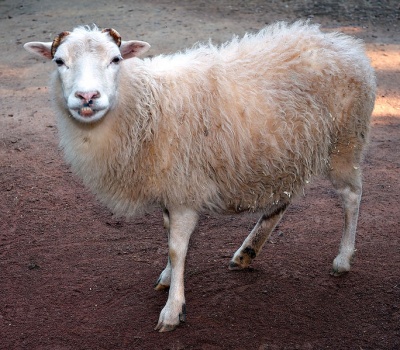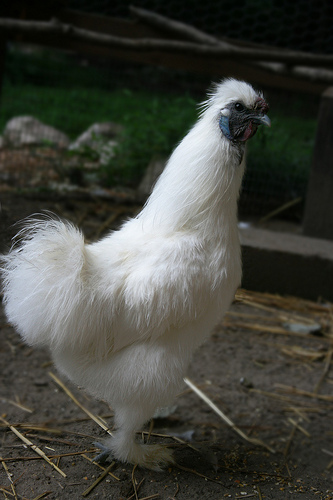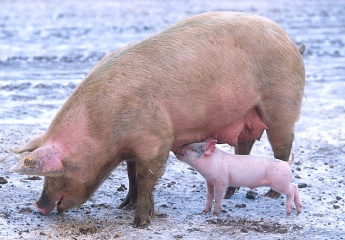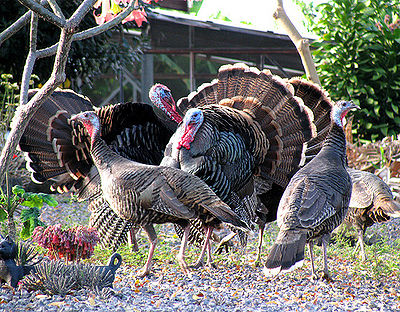
In recent years, keeping sheep as pets has become more popular. Sheep are not the classic pet, since it is not in their nature to be cuddly and affectionate. However, a bottle-fed lamb will learn to trust humans and respond well to human contact. Caring for a lamb can be a great way to teach a child responsibility and is a suitable activity for children with most disabilities. Caring for sheep is also a popular 4-H activity. Sheep are sometimes thought to be dumb animals, but studies have shown they are much smarter than they are given credit for.
Contents |
Choosing a sheep
Any breed of sheep is suitable for a pet. Choose a ewe or a neutered male. Do not adopt a sheep with horns. Sheep are social animals, so it is best to adopt at least two. Consider hair sheep, since they don’t require shearing. Look for animals that are perky and alert. They should have no cloudiness of eyes, and no missing hair or wool. Don’t buy sheep which are too thin or bloated.
Housing
Sheep need to be kept in and their predators need to be kept out. Fencing is important, since they are vulnerable to attacks from animals such as dogs and coyotes. Unfamiliar dogs should not be allowed near your sheep at all, since even if they don’t attack them they could traumatize them. Woven or net wire fences are recommended. Farmers tend to use electric fences, but these are less practical for a small enclosure. Barbed wire is not recommended, and tethering is only a good idea if you are there to watch over the sheep. Otherwise they will be vulnerable to predators and may get tangled in the line.
The ideal home for a couple of sheep is an acre of pasture. If this is not possible, sheep can be kept in a pen with an exercise yard of at least 50 square feet. Sheep need a shelter out of the rain, snow and wind. A simple clean shelter is sufficient.
Care
Sheep need their hooves trimmed to remove excess growth and allow them to walk normally. Some sheep need their hooves trimmed every few months, while others need it done less often. You will need to purchase paring shears specifically made for this purpose. Sheep need to be sheared about once a year. This should be done by a professional unless you have learned how to do it yourself.
Nutrition
Sheep are grazers and can get most of their nutrition from a pasture. They mostly eat weeds, grass and clover. In the winter or during a drought they should be fed grass hay. Alfalfa hay is not recommended. Small amounts of grain can be fed to sheep as a treat or training tool, as long as it is introduced gradually. Sheep should also be given mineralized salt formulated especially for them. Place food in a trough or manger, as sheep will not eat dirty food. If they do eat it, they are at risk for ingesting worm larvae and coccidia oocytes. Fresh water must also be provided, since unlike cattle, they will not drink dirty water. Sometimes sheep are getting sufficient moisture from their food and don’t drink much, so this is not cause for alarm.
Video
Related articles:
External links:



